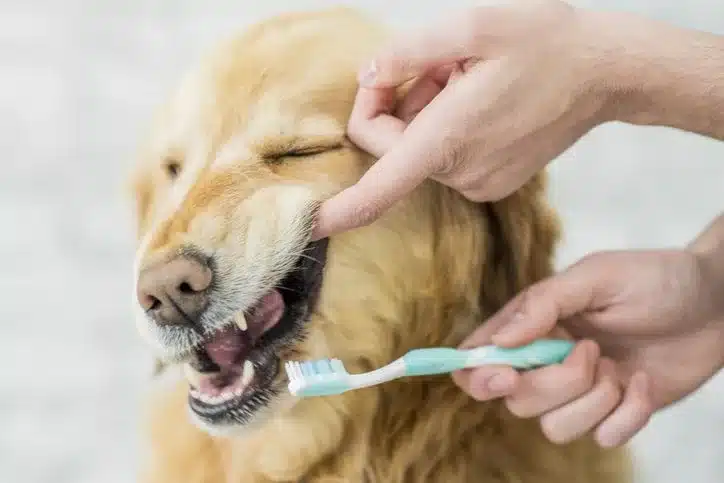Effective ways to naturally boost your dog’s immune system and enhance their overall health. In this comprehensive guide, we will explore various techniques and strategies to strengthen your furry friend’s defenses against illnesses and diseases. From incorporating immune-boosting foods into their diet to implementing regular exercise routines, we have got you covered. Discover the key steps you can take to ensure your dog’s immunity is at its peak, allowing them to live a long, happy, and healthy life.
Understanding the Immune System of Dogs
Dogs, just like humans, have an intricate immune system that plays a vital role in keeping them healthy and free from diseases. Understanding how the immune system works in dogs can help pet owners take necessary steps to boost their furry friend’s immunity naturally and strengthen their defenses.
The Role of the Immune System in Dogs
The immune system in dogs acts as a defense mechanism against harmful pathogens such as bacteria, viruses, and parasites. It is responsible for identifying and eliminating these invaders to prevent infections and maintain overall well-being. The immune system consists of various components, including white blood cells, antibodies, and lymphatic tissues, working together to protect the dog’s body.
When a dog is exposed to a pathogen, the immune system recognizes it as foreign and launches a series of responses to neutralize and eliminate it. This response involves the production of antibodies that bind to the pathogens, rendering them harmless, and activating white blood cells to destroy them. Additionally, the immune system also has memory cells that remember specific pathogens, enabling a quicker and more efficient response if the dog encounters the same pathogen in the future.
Common Factors that Weaken the Immune System in Dogs
While dogs have a remarkable immune system, certain factors can weaken their defenses, making them more susceptible to illnesses and infections. It is crucial for dog owners to be aware of these factors and take appropriate measures to support their dog’s immune system. Some common factors that can weaken a dog’s immune system include:
- Poor Nutrition: A balanced and nutrient-rich diet is essential for maintaining a strong immune system in dogs. Malnutrition or a diet lacking in vital nutrients can compromise the immune system, making the dog more susceptible to infections.
- Lack of Exercise: Regular exercise is not only important for a dog’s physical health but also for boosting their immune system. Exercise helps improve circulation, increases the production of white blood cells, and enhances overall immunity.
- Stress and Anxiety: Dogs, just like humans, can experience stress and anxiety. Chronic stress can suppress the immune system, making dogs more vulnerable to illnesses. Creating a calm and stress-free environment for your dog can help strengthen their immune system.
- Environmental Factors: Exposure to pollutants, chemicals, and toxins in the environment can weaken a dog’s immune system. It is important to minimize their exposure to such substances and provide a clean and safe living environment.
- Age and Genetics: The immune system tends to weaken with age, making senior dogs more susceptible to infections. Additionally, certain genetic factors can also impact a dog’s immune system. Regular veterinary check-ups and appropriate vaccinations are crucial for maintaining immune health in older dogs.
By understanding the immune system of dogs and recognizing the factors that can weaken it, dog owners can take proactive steps to naturally boost their dog’s immunity. Providing a well-balanced diet, regular exercise, a stress-free environment, and minimizing exposure to harmful substances can go a long way in strengthening your dog’s defenses and ensuring their overall health and well-being.
Tips for Boosting Dog Immunity Naturally
Provide a Balanced and Nutritious Diet
Feeding your dog a balanced and nutritious diet is crucial for boosting their immune system. Ensure that their meals consist of high-quality protein sources, such as lean meats or fish, which provide essential amino acids. Include a variety of fruits and vegetables to supply important vitamins and minerals. Additionally, consider adding probiotics to their diet to promote a healthy gut, which plays a significant role in immune function.
Incorporate Supplements and Herbs
Supplements and herbs can be beneficial in enhancing your dog’s immune system. Vitamin C is known to support immune function, so you can consider giving your dog a vitamin C supplement after consulting with your veterinarian. Another popular supplement is omega-3 fatty acids, which have anti-inflammatory properties and can help strengthen the immune response. Additionally, herbs like echinacea and astragalus are believed to boost immunity and can be incorporated into their diet in consultation with your vet.
Regular Exercise and Physical Activity
Regular exercise and physical activity are not only essential for maintaining your dog’s overall health but also for boosting their immune system. Engaging in activities like daily walks, playing fetch, or swimming can help stimulate their immune system and keep it functioning optimally. Exercise also helps to reduce stress levels, which can have a positive impact on immune function. However, it’s important to consider your dog’s age, breed, and any existing health conditions while determining the appropriate exercise routine.
By following these tips and incorporating them into your dog’s lifestyle, you can naturally boost their immune system and strengthen their defenses against illnesses and diseases. Remember to consult with your veterinarian before making any significant changes to your dog’s diet or introducing new supplements. With proper care and attention, you can help your furry friend lead a healthy and immune-strong life.
Natural Remedies to Strengthen Your Dog’s Defenses
Use of Medicinal Mushrooms
Medicinal mushrooms have been used for centuries to boost the immune system in both humans and animals. These mushrooms contain bioactive compounds that have immune-enhancing properties. Some commonly used medicinal mushrooms for dogs include Reishi, Shiitake, and Turkey Tail.
Reishi mushrooms, also known as the “mushroom of immortality,” have powerful antioxidant and anti-inflammatory properties. They help regulate the immune system and improve overall health. Shiitake mushrooms are rich in beta-glucans, which stimulate the production of white blood cells and enhance immune function. Turkey Tail mushrooms are known for their immune-boosting polysaccharides and can help fight off infections.
Integrating medicinal mushrooms into your dog’s diet can provide a natural and effective way to strengthen their immune system. However, it’s important to consult with a veterinarian before introducing any new supplements or changes to your dog’s diet.
Probiotics for Gut Health
Did you know that a healthy gut plays a crucial role in maintaining a strong immune system in dogs? Probiotics are beneficial bacteria that promote a healthy balance of gut flora. They can improve digestion, nutrient absorption, and overall gut health, leading to a stronger immune system.
Probiotic supplements specifically formulated for dogs can help restore and maintain a healthy gut microbiome. Look for strains like Lactobacillus acidophilus and Bifidobacterium animalis, which are commonly found in canine probiotics. These probiotics can help prevent gastrointestinal issues, reduce inflammation, and enhance your dog’s immune response.
When choosing a probiotic for your dog, consider their specific needs and consult with your veterinarian to determine the appropriate dosage and duration of use. Additionally, providing a balanced diet rich in prebiotic fibers can also support the growth of beneficial gut bacteria.
Herbal Remedies for Immune Support
Herbs have long been used as natural remedies to support immune health in dogs. Some herbs possess immune-stimulating properties and can aid in preventing and fighting infections. However, it is essential to consult with a veterinarian before introducing any herbal remedies to your dog, as some herbs can be toxic or interact with certain medications.
Echinacea is a popular herb known for its immune-boosting properties. It stimulates the production of white blood cells and enhances the overall immune response. Astragalus is another herb that can help strengthen your dog’s immune system. It has antioxidant and anti-inflammatory effects, promoting overall wellness.
Other herbs like garlic, ginger, and turmeric also possess immune-supportive properties. However, it’s important to use them in moderation and under professional guidance, as excessive amounts may lead to adverse effects.
Incorporating herbal remedies into your dog’s routine can provide natural immune support. Remember to consult with a veterinarian to ensure the safety and effectiveness of these remedies for your furry friend.
Implementing natural remedies like medicinal mushrooms, probiotics, and herbal supplements can contribute to strengthening your dog’s immune system naturally. However, it’s crucial to consult with a veterinarian to determine the most appropriate and safe options for your dog’s specific needs. By taking a holistic approach to your dog’s health, you can help them live a happy and healthy life with a strong immune system.
There are various natural methods available to boost your dog’s immunity and strengthen their defenses. From providing a balanced diet rich in essential nutrients to incorporating immune-boosting supplements and engaging in regular exercise, you can significantly enhance your furry friend’s overall health and well-being. Additionally, ensuring a clean and stress-free environment, regular veterinary check-ups, and maintaining a strong bond with your dog through love and affection can all contribute to their immune system’s resilience. By implementing these strategies, you can help your dog live a long, healthy, and active life.







